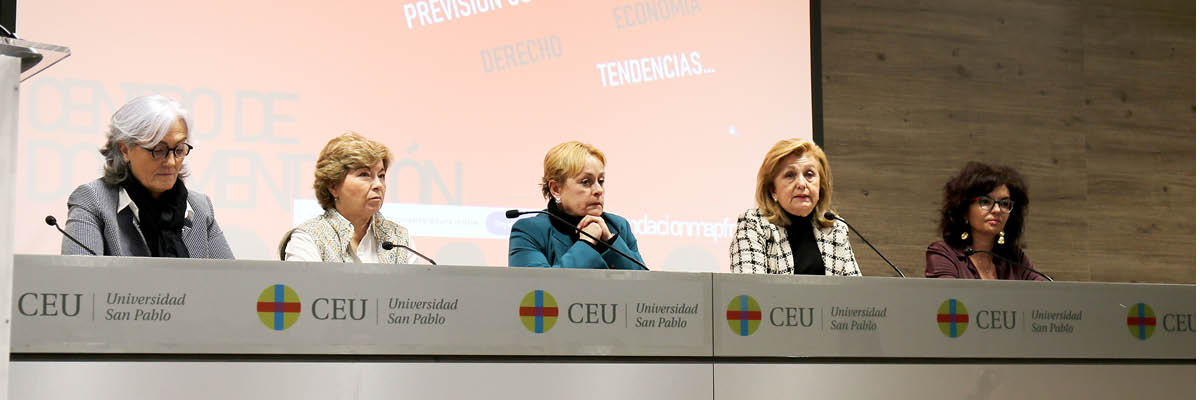- The School
- Programs
- Programs
- PHD in Health Science and Technology
- PHD in Composition, History and Technique in Architecture and Urban Planning
- PHD in Social Comunication
- PHD in Law and Economics
- PHD in Humanities for the Contemporary World
- PHD in Traslational Medicine
- PHD in Engineering and Technological Development in Industrial Biomedical and Computational Applications
- Programs
- Academic Management
- Grants and Mobility
- Admission
- Doctoral Thesis
- The School
- Programs
- Programs
- PHD in Health Science and Technology
- PHD in Composition, History and Technique in Architecture and Urban Planning
- PHD in Social Comunication
- PHD in Law and Economics
- PHD in Humanities for the Contemporary World
- PHD in Traslational Medicine
- PHD in Engineering and Technological Development in Industrial Biomedical and Computational Applications
- Programs
- Academic Management
- Grants and Mobility
- Admission
- Doctoral Thesis
Sergio Rius Rocabert’s doctoral thesis has recently been distinguished by the Biotechnology Markets Platform as the best doctoral thesis defended in the field of health biotechnology and/or agri-food biotechnology in the 2021-2022 academic year. His doctoral thesis, with an international mention, was defended as part of the programme in Science and Health Technology at the International Doctoral School CEU, CEINDO in Madrid on the 16th of June, 2022. Titled: “Development and characterization of new antiviral strategies based on synthetic materials and IFNβ response and evaluation of their biological relevance” the thesis was directed by the following professor from the Faculty of Pharmacy at San Pablo CEU University: Antonia García Fernández.
(head of the metabolomics laboratory at the Centre for Metabolomics and Bioanalysis, CEMBIO) and Estanislao Nistal Villán (head of the Virus and Innate Immunity Laboratory).
We wanted to have a meeting with Sergio and he answered some of our questions:
Sergio, what is the subject of your thesis?
It would be fair to say that the main pivotal point of the thesis is antiviral action. Since it is such a broad topic, we have tried to approach it from different angles. From the determination of undescribed ways in which an eminently antiviral cytokine such as interferon is produced, a more effective technique to quantify it or its influence on the metabolism of infected cells, to the characterisation of inorganic materials with virucidal properties.
What are the most important aspects of your work that stand out?
I think there are several interesting points. I would highlight the description of previously unknown ways in which the antiviral response can be triggered, the possibility of developing materials with the ability to actively kill viruses, and describing from a metabolism point of view, how developing an antiviral response affects cells.
Despite the development of multiple techniques for the detection of soluble proteins, such as cytokines, what would you highlight about the method you have developed?
Compared to other commonly used techniques, such as ELISA, the method we propose allows us to quantify interferon based on its biological activity, i.e., its ability to inhibit viral infection. This allows us to know how much of an effective or useful cytokine we have in a solution. In addition, our aim was to be more precise in its quantification, based on the exact definition of what a unit of interferon is. In this way, our method avoids the overestimation produced by previous methods.
The development of new techniques such as the study of metabolomics makes it possible to approach infections from a different angle. What have you learned from your experience in this field?
The study of metabolomics opens up an exciting field. Traditionally, research on pathogens and infections has focused on the interaction of proteins or what happens to the genetic material of viruses, forgetting the metabolites that are of vital importance in the development of structures needed to produce new viruses or the energy needed by both the host and the pathogen, among others. My approach to metabolomics has allowed me to develop a type of techniques that were completely foreign to me and whose approach is very different. They have changed the way I look at science, providing me with many resources to resolve questions and issues that arise in a more comprehensive way.
What does the development of antiviral materials transcend what was experienced during the pandemic?
I believe that having a range of these materials will allow us to develop all kinds of objects and equipment with a passive virucidal activity that will limit the need for periodic disinfection. This could be vital for the development of surgical material or its application in health centres where it is more necessary to maintain sterility and avoid contagion. This type of material will help us not only in day-to-day life but also in the event of a new pandemic.
Why is it interesting to understand the molecular mechanisms of the antiviral response, and what application could be given to induction mechanisms such as the one proposed?
In my opinion, understanding how our cells respond to viral infections and how they develop the antiviral response is vital to better understand the relationship we have with our pathogens. In addition, discovering new ways to activate the natural antiviral response will allow us to have a wider range of possibilities not only for fighting viral infections but for any situation in which immunity plays a relevant role. Examples could include the use of agonists or activators of the described pathways as vaccine adjuvants or for use in cancer immunotherapy.
You have developed your thesis in a complicated period, what do you take away from these difficult years from your experience in research?
The years of the pandemic were difficult, especially from an emotional point of view, because of all the terrible news and knowing that family and friends were affected. From a professional point of view, projects that could have a practical utility in terms of knowledge of the coronavirus or how to develop a tool to combat it naturally displaced the main projects we were developing. Many interesting experiments had to be postponed, but at the same time it allowed us to collaborate and develop on others of utmost importance, such as antiviral materials.
From your experience, what are the main challenges you face in the next stage after finishing your thesis?
After completing the doctoral thesis, there is a stage that I see as very interesting. From the research point of view, we find ourselves in a process in which the lines of development initiated with the thesis increasingly raise more possible applications and questions to be solved, sometimes to an extent that is unmanageable for a single person. This presents me with the challenge of trying to find funding to be able to continue exploring what is most interesting and to delegate part of the research to new students who join the group and help them in their first steps into the world of research.
What would you highlight from your training as a biotechnologist with respect to the challenges you have faced during your thesis and in your current stage, after finishing it?
Research in the natural and health sciences has the advantage of being able to draw on many university courses: biotechnology, biochemistry, pharmacy, biology, medicine… All of them provide very useful and diverse knowledge that allows problems to be approached from multiple perspectives. As a biotechnologist, I believe that my training has given me a broad base in terms of the best resources and techniques available to solve the scientific questions that progressively arise. Furthermore, my training also allowed me to have a working knowledge of all the scientific aspects on which my research is based, particularly molecular and cellular biology.
What would you highlight about humanistic training in your personal and professional development as a biotechnologist?
Of course, research into such small, but at the same time overwhelmingly complex things such as protein signalling cascades or metabolic imbalances is a constant exercise in humility. There is so much we do not know that it is impossible to make the mistake of thinking that one is an expert for having described a very small part of it. Moreover, science is a field that requires trial and error – a lot of error, to obtain a result, so perseverance and dedication are cultivated. In my case, thanks to my teaching experience at university, I have been able to participate in the training of students. A challenge that encompasses both their professional and emotional development and that in my opinion enriches both the teacher and the student.
The Biotechnology Markets Platform is a platform that was launched in 2010 with the support of the Ministry of Science and Innovation. Its aim is to develop stable, efficient, and multilateral communication channels between the different agents of the science-technology-business-society system, to promote biotechnological innovation, technology transfer and its transfer to society, capitalising on the socio-economic, environmental and health benefits. The link to this platform and its talent award is as follows: https://www.mercadosbiotecnologicos.com/joven-talento-biotech

